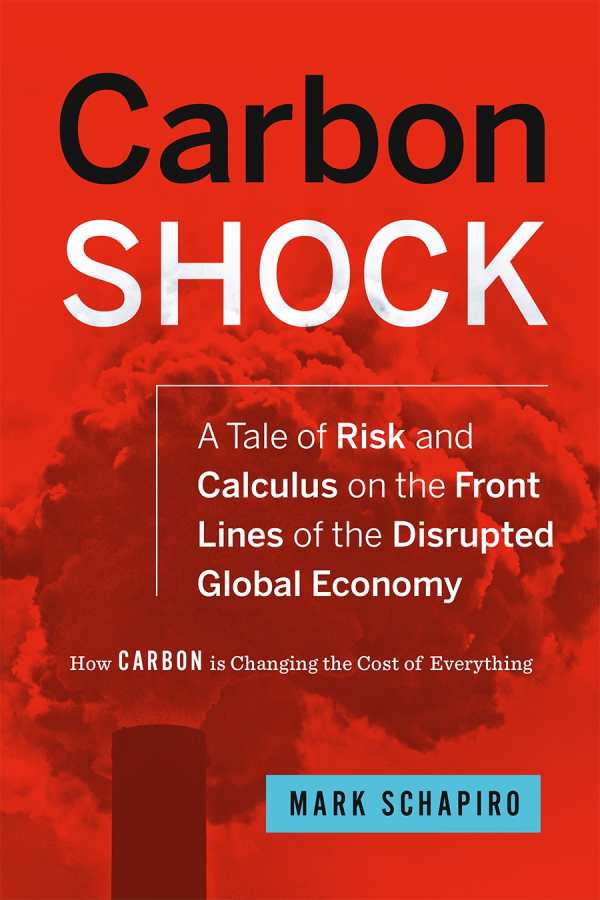Carbon Shock
A Tale of Risk and Calculus on the Front Lines of a Disrupted Global Economy
Schapiro’s analysis puts science to use in everyday life to reinforce the threat of climate change on the global economy.
The costs of climate change are often talked about in terms of the loss of human life and environmental degradation, but the unprecedented amount of carbon in the atmosphere also has massive implications for the world economy. And when it comes to large companies that pollute and the governments that have the responsibility to regulate them, economic factors like those Mark Schapiro documents in Carbon Shock shouldn’t be overlooked.
A journalist with a strong track record on the subject matter, Schapiro takes an in-depth look at this specific aspect of climate change. He does an excellent job of explaining a complicated web of interconnected economic impacts, from the way carbon offsets and credits function to how commodities from food to finance to fuel are already being affected, and how some businesses are trying to limit their risk.
Schapiro uses a wide variety of sources and reports firsthand from a similarly wide range of locations. He uses the examples of cherry farmers and wine growers in California to illustrate how crop prices will fluctuate and how government crop insurance adds an often-overlooked cost for the average citizen. He analyzes how Brazil built its economic modernization around the use of green technology and uses that success to show how alternative energy wins on price when the true costs are factored in. He compares the cities of Pittsburgh, Manchester, and Guangzhou to illustrate different governments’ approaches to calculating and mitigating the cost of carbon and discusses the differences between the United States and the European Union when it comes to taxing the environmental costs of airline travel. This anecdotal approach is ideal for making the science real in terms of everyday life, while simultaneously reinforcing the far-ranging nature of the threat and the problems of inconsistent regulation around the globe.
Perhaps the strongest part of the book is Schapiro’s thorough coverage of the cap-and-trade approach, as he documents the history of carbon exchanges and clearly lays out the pros and cons of a system where industries buy the right to further pollute, and where the same challenges of any commodities market—from theft to artificial price manipulation—apply. Schapiro explains these economic issues in an accessible way, shows approaches with varying degrees of success, and adds to the evidence that numerous industries will soon have to reckon with how best to pay monetary costs as well as environmental ones.
Reviewed by
Jeff Fleischer
Disclosure: This article is not an endorsement, but a review. The publisher of this book provided free copies of the book to have their book reviewed by a professional reviewer. No fee was paid by the publisher for this review. Foreword Reviews only recommends books that we love. Foreword Magazine, Inc. is disclosing this in accordance with the Federal Trade Commission’s 16 CFR, Part 255.

